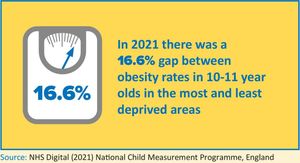Climate change is increasingly disrupting food security around the globe, impacting how we produce and consume food. Experts are raising alarms over how shifts in weather patterns are complicate food systems and raising health risks.
A recent study highlights the far-reaching effects of climate change on food-borne diseases, especially across Asia and Africa. Due to rising temperatures and altered precipitation, food pathogens are spreading more readily, making meals potentially hazardous for consumers.
According to researchers from Benha University, as the planet heats up, pathogens are gaining new advantages. They are finding ways to adapt to changing climates, resulting not only in increased food contamination but also significant public health concerns, particularly for vulnerable populations.
The World Health Organization warns of the severe consequences of contaminated food, linking it to approximately 600 million illnesses and over 420,000 deaths every year. Africa, alone, is responsible for around 91 million cases and 137,000 deaths, which collectively highlight the urgent need for enhanced food safety protocols.
Dr. Ahmed Alhussaini Hamad, one of the study's authors, stresses the importance of recognizing the interplay between climate change and public health. “This study aims to promote awareness and evoke discussions on effective mitigation strategies,” he notes.
Looking closely at the impact on agriculture, it's clear low-income countries are feeling the brunt of these changes. Farmers often lack resources to adapt to climate fluctuations, complicting their ability to produce safe food and maintain economic stability.
Five food-borne diseases are identified as being particularly affected by climate change: Salmonellosis, Campylobacteriosis, Listeriosis, cholera, and Aflatoxin Poisoning. The link has been made clearer by evidence showing how variations in water temperature and quality can lead to spikes in cholera infections, particularly noticeable during severe droughts and flooding incidents.
Climate change exacerbates the existing challenges faced by farmers, pushing the agricultural system to the edge. For many, this means having to rethink not just their farming operations but also their approaches to dealing with pest control and food safety.
African nations like Cameroon have seen firsthand the relationship between climate change and food contamination. For example, cholera outbreaks within some cities have demonstrated how environmental factors have been fueling pathogen growth.
Dr. Rene Ramses Meyong, another expert from the National Climate Change Observatory, underlines the intricacies of the climate-disease interaction. He shares, “Climate disruption has been evident since the mid-20th century, with significant shifts noted across various agricultural zones.”
Efforts are underway to monitor these pathogens and their interactions. For example, the Cameroon National Climate Observatory is already translating forecast climate information targeted at agriculture, health, and livestock populations.
Mitigation strategies centered around climate-smart agriculture could provide the necessary remedy to these looming challenges. By adopting integrated agronomic practices, farmers could minimize food-borne pathogen contamination and secure their livelihoods against the ever-evolving threat of climate change.
Adding to this body of research is data from Nature Climate Change, which envisions potential reductions of global dietary emissions if more people adopt the EAT-Lancet planetary health diet. This significant dietary shift could lead to 17% reductions in emissions, mostly attributed to less red meat consumption.
Food choices have proven to be critically intertwined with both public health and environmental sustainability. With current food systems contributing extensively to greenhouse gas emissions, shifting to more plant-based diets stands out as key to combating climate change.
The research also identifies demographic disparities—wealthy populations typically have higher dietary emissions due to increased consumption of animal-based products. Whereas lower-income families tend to rely on staple grains and tubers, yielding lower emissions but also raising the risk of nutritional deficiencies.
Transitioning to healthier diets isn't without challenges, particularly for poorer populations who often can't access or afford nutritious foods. Consequently, strategies to improve agricultural efficiency and availability of affordable foods will be indispensable to promote dietary changes.
Notably, the study presents several policy recommendations aimed at facilitating these transitions. Careful planning will be necessary to avoid adverse impacts on food prices and agricultural markets.
Going forward, there's also recognition of data limitations, as the current study didn’t cover key populous countries nor capture regional waste and consumption patterns accurately. Researchers believe future studies should address these gaps for a more comprehensive assessment of impacts.
The interplay between climate change and food security poses urgent questions about the future of global health and nutrition. Understanding these complex dynamics could be pivotal not only for maintaining food safety but also for enhancing overall public health resilience.
With experts like Hamad advocating for the empowerment of countries to create targeted strategies, the overarching goal remains clear: we must mitigate the effects of climate change on food systems effectively. Ensuring safe food access for all is not just about protecting individual health, but also about fostering broader societal wellbeing.
The imperative now lies with policymakers, researchers, and communities to work collaboratively and urgently. Innovations and collective efforts aligning food production with climate resilience will be key to safeguarding the planet and its inhabitants.
So, as climate patterns persist to transform, the focus should remain on building adaptive measures within food systems. The health of future generations, and the sustainability of our environment, depend on the actions taken today.



